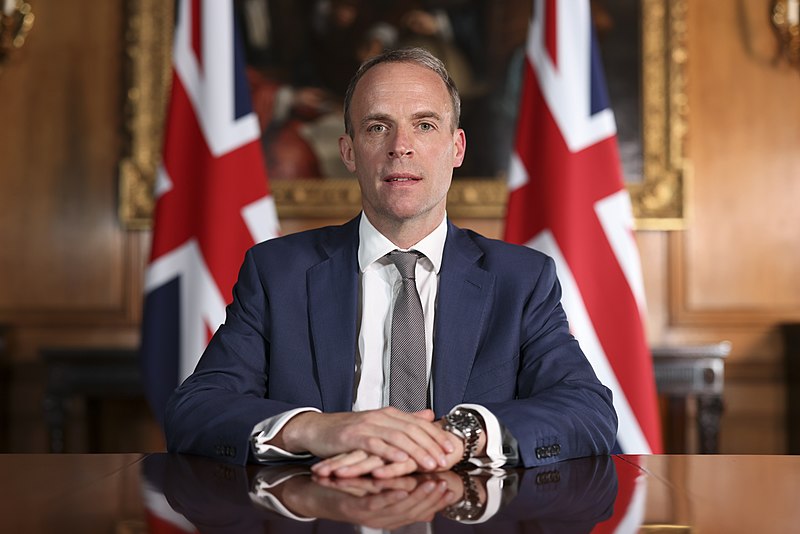There is a prevailing myth across the political spectrum of the effective bully. The effective bully is a figure of authority whose tough and commanding presence gets things done; objections raised are quashed by screaming, fist banging on tables, glaring and withering, angry put-downs. This is a sort of dream bad boy minister for political wonks. They are bad, yes, but they are so charmingly productive and their ideas get implemented. One can’t help wondering – maybe, just maybe they could be fixed by the love of a good policy.
Yet, just like real life never quite produces a bad boy with a heart of gold, the effective bully never really materialises. There are political figures with long careers who were known to be dreadful bosses, but the myth of the effective bully is that these things were related to one another. In truth, they were successful despite their failings, not because of them. Gordon Brown’s notoriously bad temper did not make him a great chancellor, in fact it was constantly brought up by many who worked for him as to why he did not ultimately succeed as Prime Minister. Margaret Thatcher’s derision toward ministers she saw as weak, such as Geoffrey Howe was equally not the reason for her political impact. Though The Thick of It’s Malcom Tucker mythologized foul mouthed brutality as effectiveness, this sort of callousness toward the welfare of others often leads to political problems, not triumphs.
If forced, we could provide examples. Let us make up a minister. We will call him – this name has been picked at random – Dominic Raab. Say that our man stands accused of bullying by 27 civil servants (readers will notice that this example is fictional; in real life, surely someone accused of bad behaviour by 27 different people would have been fired already by the Prime Minister, even if they strenuously denied any bullying). The details of these accusations are not known to us, and what has been revealed so far might not seem so bad compared to some of the other torments inflicted by Westminster bullies. In this wholly fictional world, maybe some would be tempted to say “so what”? Should being unpleasant be enough to get you sacked?
There is a moral argument to be made against bullying; it is arguable that workers simply do not have to put up with being made miserable by their working conditions or to be harassed by their bosses. This will include egregious comments about their appearance and performance, but also more subtle forms of undermining as well. Not every form of bullying will look like a 1990s heavy mobile phone flying toward your forehead. So if we accept that workers have rights, then those will include not having to put up with any type of inappropriate work environment.
Still, if the moral argument does not convince, there is a practical reason why the government should not keep a bully around. Bullying is ineffectual and actively damaging. A cultural environment that has bullying embedded into its structures is a work environment where mistakes will be made much more frequently, and crucially, nobody will feel capable of pointing them out. If civil servants are afraid to speak up, if authority is only exercised through intimidation – and that will include the sort of petty cruelty that might not seem obvious at first, but that builds up to the point that would affect 27 different people – then the government’s performance suffers, and there should at least be the pretence that the once great country of Britain isn’t some kind of kakistocracy.
One of the reasons why a relatively straightforward argument – bullying is bad, and you shouldn’t do it – still hasn’t been accepted by the parts of the wider political sphere is that there is still a pervasive belief that bullying is a part of the job. Much of what passes as fond battle stories among politicians and journalists would make a HR professional burst into flames. Many regard a fundamental unfairness that new rules have come to make it impossible for them to inflict the sort of bad behaviour that was inflicted on them when starting out. There is a view from those in politics that the complainers are part of a plot to implement a culture of oversensitiveness, like outsiders wishing to destroy the traditional way of life. Maybe smaller, pettier accusations against our made up minister – which include accusations from senior civil servants, accustomed to more cavalier attitudes, of recurring undermining – and nastiness – don’t seem so bad when you’ve endured much worse and did not complain; this forgets that back then, there were less mechanisms to complain to, and that was a bad thing.
On this and much else politics is behind what the normal rules of engagement at work are. The reason why bullying has been so cracked down on in corporate settings is not the kindness and wokery of CEO’s hearts. It is because time and time again bosses whose only management method was to undermine the confidence of those beneath them have proven to be liabilities in the long run. It is not asking too much to ask our politicians to be both effective and decent bosses – there are numerous examples of politicians that prove this is quite possible. You might have dreamed yourself to be like that bad boy of politics, the unwavering genius with a domineering hand, but it is time to grow up.


